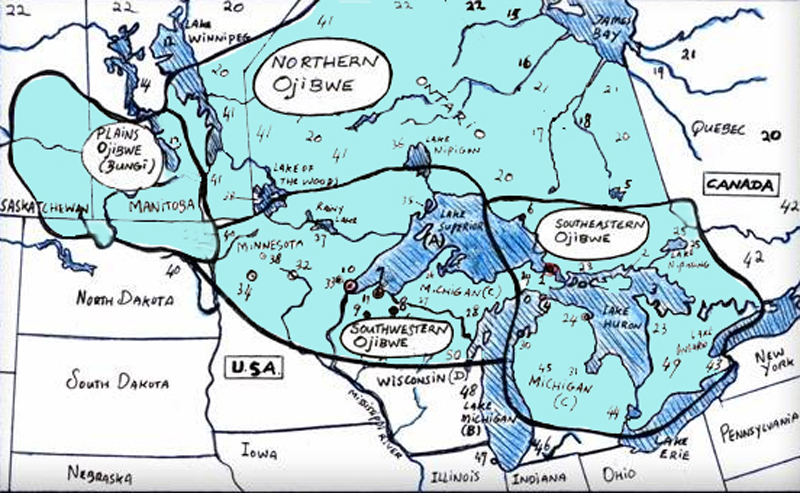This Monday, Dr. Wayne Gersie, Michigan Tech’s new Vice President for Diversity and Inclusion, sent out an email to the student body in honor of November being American Indian and Alaska Native Heritage Month. As detailed in Gersie’s email, November was designated as National American Indian Heritage Month by President George H.W. Bush in 1990. Since then, it is now commonly known around the country as American Indian and Alaska Native Heritage Month.
In celebration of this heritage month, Michigan Tech has put together a few events aimed to educate individuals about the over 570 indigenous tribes in the United States and specifically those who call the surrounding Great Lakes area home.
On Monday, Nov. 16, as part of the Dynamic Student Dialogues series, the Center for Diversity and Inclusion (CDI) along with the Provost’s Office and the State of Michigan’s King-Chavez-Parks Initiative will be presenting “Medicine through Expression with Audiopharmacy.” Audiopharmacy is a multi-cultural hip-hop ensemble that uses its diverse cultural background to create a unique artistic experience, representative of nearly every corner of the planet. This virtual event will take place at 7 p.m. Monday night and can be viewed through Zoom here.
As part of the Diverse Dialogues event series, “The Transmission of Indigenous Thought and Philosophy through Art and Activism” will take place virtually on Wednesday, Nov. 18 at 7 p.m. on Zoom. This event, presented by the CDI, NSRGNTS Collective, Residence Life and the Inter-Residence Housing Council (IRHC), aims to bring to attention the topics of diversity, equity and inclusion, especially on Michigan Tech’s campus.
Lastly, a talk entitled “Centering Traditional Foods: How Dynamite Hill Farms is working to revitalize relationships, language, culture, and responsibility with the land” will take place on Monday, Nov. 30 following Thanksgiving Break. Dynamite Hill Farms, located in L’Anse, MI, is a specialty farm dedicated “to the production of traditional, clean, and artisan foods,” according to their Facebook page. Tune in virtually via Zoom at 6:30 p.m.
Michigan Tech owes a lot to the Native American communities that surround campus and the Copper Country. The land that Michigan Tech currently calls home was once territory to local tribes. You may have seen this paragraph on Michigan Tech’s website, official university documents, or at the bottom of faculty emails: “Michigan Technological University is located within Ojibwa (Chippewa) homelands and ceded-territory established by the Treaty of 1842, the territory of Native American nations in Gakiiwe’onaning (Keweenaw Bay), Gete-gitgaaning (Lac Vieux Desert), Mashkii-ziibing (Bad River), Odaawaa-zaaga’iganing (Lac Courte Oreilles), Waaswaaganing (Lac Du Flambeau), Miskwaabikong (Red Cliff), Wezaawaagami-ziibiing (St. Croix), and Zaka’aaganing (Sokaogon Mole Lake).” This paragraph is meant to honor the ancestral homelands of each of the Native American nations as described above.
Many of the tribes of our surrounding landscapes and cities also owe their names to Native American languages. Keweenaw is said to come from a Native American term for portage, Ahmeek, a city just north of Calumet, comes from a Chippewa word meaning beaver, while Michigan itself is derived from Michigama, meaning large lake.
In his email, Dr. Gersie also offered some additional resources for those interested in learning more about the Anishinaabe People, or the group of indigenous tribes that surround the Great Lakes and share a similar cultural background.These resources include an article from Harvard University on traditions, information on the Anishinaabemowin language, and methods of learning from Tribal College Journal.





